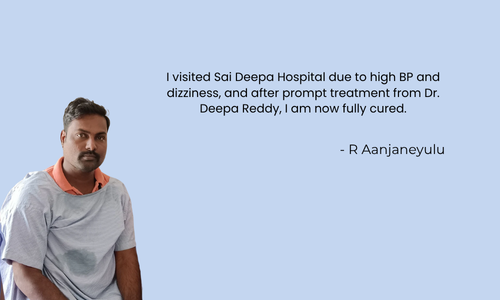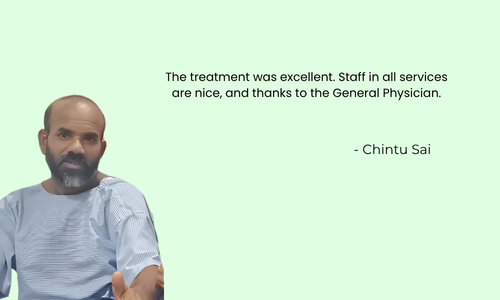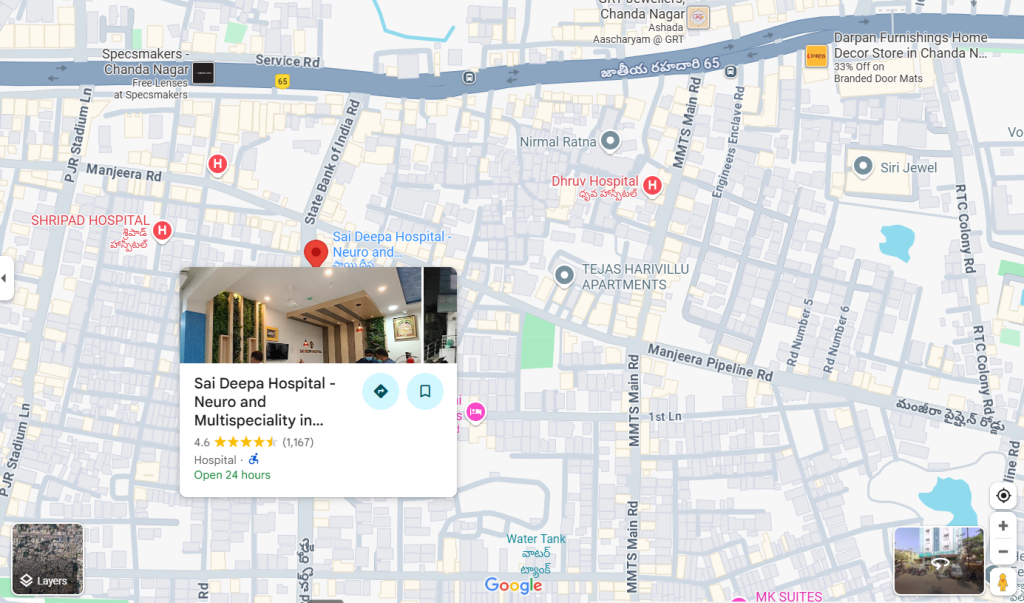Best Anal Fissures Treatment in Hyderabad
- Home
- Best Anal Fissures Treatment in Hyderabad
Best Anal Fissures Treatment in Hyderabad
Anal fissures are a common yet often uncomfortable condition that affects individuals of all ages. These small tears in the skin lining the anus can cause significant pain and discomfort, particularly during and after bowel movements. With the right knowledge and timely intervention, anal fissures can be managed effectively. This blog explores everything you need to know about anal fissures, including causes, symptoms, treatment options, and preventive tips.
Book An Appointment
1L+
Happy Customers
25+
Qualified Doctors
50
Rooms
5000+
Successful Surgeries
Get a
Consultation
24/7 Ambulance
Facility
Insurance
Claim Support
What Is an Anal Fissure?
An anal fissure is a small tear or cut in the thin tissue (mucosa) lining the anus. It usually occurs due to trauma from passing hard or large stools, which stretches the anal canal beyond its capacity. This injury causes the muscle in the anal sphincter to spasm, further reducing blood flow to the area and delaying healing. Anal fissures can be classified into two types:
- Acute Anal Fissures: These are recent tears that typically heal within a few weeks with conservative treatment.
- Chronic Anal Fissures: These persist for more than six weeks and may involve scar tissue or a skin tag.

Dr. Sasidhara Roa A
MBBS, MS
5000+ Successful Surgeries
11+ Years of experience
Dr. Sasidhara Rao A. is an experienced General and Laparoscopic Surgeon at Sree Sai Deepa Hospitals, Chandanagar, with over 11 years of expertise and 5000+ successful surgeries. He specializes in laparoscopic, laser, and microscopic surgeries, treating conditions like piles, fissures, varicose veins, and gallbladder issues.
Doctor’s Fellowships:
Fellowship - International Society of Coloproctology
Fellowship in Intimate Health
Fellowship in Diagnostic Endoscopy
What Are the Symptoms of an Anal Fissure?
Symptoms of anal fissures are typically easy to identify and include:
- Sharp, stabbing pain during or after bowel movements, which can last from minutes to hours.
- Bright red blood is visible on toilet paper, stool, or in the toilet bowl.
- A visible crack or tear around the anus upon physical examination.
- Itching or irritation in the anal region due to persistent inflammation.
- Presence of a small lump or skin tag near the fissure in chronic cases.
How Does an Anal Fissure Feel Like?
People with anal fissures often describe a burning or cutting sensation when passing stool. The pain can be intense and may persist for several hours after a bowel movement, affecting daily activities. Additionally, anxiety about bowel movements is common due to the anticipation of severe discomfort.
Difference Between a Pile and an Anal Fissure
While both conditions affect the anal region, piles (hemorrhoids) and anal fissures are distinct in nature:
- Piles are swollen blood vessels in the rectum or anus and often cause painless bleeding.
- Anal Fissures are tears in the anal lining that result in severe pain and sometimes bleeding.
- Piles may present with lumps or swelling, while fissures involve a linear tear.
- Treatment and prognosis differ, so accurate diagnosis is essential for effective care.
Get your surgery cost
How Is an Anal Fissure Diagnosed?
Doctors usually diagnose anal fissures through a simple physical examination:
- Visual Inspection: The healthcare provider gently separates the buttocks to examine the anal region.
- Digital Rectal Exam: Usually avoided in painful fissures but may be necessary for deeper issues.
- Anoscopy: A small device may be used to view the inside of the anal canal if needed.
- In chronic or recurrent cases, further investigations like sigmoidoscopy or colonoscopy may be done to rule out other conditions such as Crohn’s disease or infections.
What Is the Medical Treatment for an Anal Fissure?
Initial treatment focuses on relieving pain, promoting healing, and preventing recurrence:
- Topical Anesthetics: Such as lidocaine to numb the area and reduce discomfort.
- Vasodilator Ointments: Nitroglycerin or calcium channel blockers like nifedipine are applied to relax the anal sphincter, increasing blood flow to the area.
- Stool Softeners: Prevent straining by making stools easier to pass.
- Oral Pain Relievers: NSAIDs like ibuprofen can manage inflammation and pain.
If symptoms persist beyond 6-8 weeks:
- Botox Injections: Temporarily paralyze the anal sphincter, allowing the fissure to heal.
- Lateral Internal Sphincterotomy: A minor surgical procedure where a small part of the sphincter muscle is cut to relieve tension, promote healing, and reduce pain.
How Do You Heal an Anal Fissure at Home?
Home remedies can be highly effective in healing mild fissures:
- Warm Sitz Baths: Soak in warm water for 10-15 minutes several times a day to relax the muscles and improve blood flow.
- Dietary Fiber: Include fruits, vegetables, and whole grains to soften stool and ease bowel movements.
- Hydration: Drinking 8-10 glasses of water daily helps prevent constipation.
- Good Bowel Habits: Avoid straining, respond promptly to the urge, and limit time on the toilet.
- Topical Treatments: Over-the-counter creams containing hydrocortisone or witch hazel may provide temporary relief from itching and inflammation.
Accreditations

Saideepaneurocare Hospitals is NABH certified, a mark of excellence in patient safety and care. We follow stringent healthcare protocols and maintain world-class hygiene standards.

We are ISO 9001 certified, ensuring the highest standards in quality management and patient care. This certification reflects our commitment to efficient processes and continuous improvement in healthcare services.
What Are the Causes of an Anal Fissure?
Several factors can contribute to the development of anal fissures:
- Passing Hard or Large Stools: Common during constipation episodes.
- Chronic Diarrhea: Frequent bowel movements can irritate and damage the anal lining.
- Straining During Bowel Movements: Increases pressure on the anal canal.
- Childbirth Trauma: Pressure during delivery can cause fissures in women.
- Anal Intercourse: May result in tearing of the anal lining.
- Medical Conditions: Crohn’s disease, infections, or tumors may cause or exacerbate fissures.
- Repeated trauma and poor healing contribute to chronic fissures, which require more intensive management.
Surgical Options for Anal Fissures
When conservative treatments fail, surgery may be the most effective solution to provide long-term relief. Surgical options include:
Lateral Internal Sphincterotomy (LIS): The most common surgical procedure for chronic fissures. The surgeon makes a small incision in the internal anal sphincter muscle to reduce spasm and allow the fissure to heal. This procedure has a high success rate and minimal complications.
Fissurectomy: Involves the surgical removal of the fissure along with surrounding scar tissue to promote new tissue growth and healing. It is less commonly performed but may be used in selected cases.
Advancement Flap Surgery: Used for complex or recurrent fissures, this involves covering the fissure with a flap of healthy tissue from nearby areas to enhance healing.
Surgery is typically an outpatient procedure, and patients often experience relief within a few days. Most recover fully within 1-2 weeks.
Sai Deepa Hospital - Neuro and Multispeciality
Plot no 387, Church road, Huda colony, Chanda Nagar, Hyderabad – 500050
Which is the Best Hospital for Anal Fissures in Hyderabad
When it comes to treating anal fissures with advanced care and modern surgical techniques, Sree Sai Deepa Hospital in Chandanagar, Hyderabad stands out. Known for its expert team of surgeons and state-of-the-art facilities, this hospital offers both conservative and surgical treatments tailored to each patient’s needs.
With a focus on patient comfort and faster recovery, Sree Sai Deepa Hospital ensures effective outcomes for those suffering from anal fissures. If you’re seeking reliable and compassionate care, this hospital is a top choice in Hyderabad.
Where to get the best Anal fissure treatment in Chandanagar, Hyderabad?
📍 Sai Deepa Hospitals, Chanda Nagar, Hyderabad
📞 Call or WhatsApp: +91-7093762716
🌐 www.saideepaneurocare.com
Best Anal Fissures surgeon in Chandanagar | Best Anal Fissures surgeon in Miyapur | Best Anal Fissures surgeon in Kukatpally
Patient Reviews



FAQ's on Anal Fissure
1. What happens if an anal fissure is not treated?
Untreated fissures can become chronic, leading to persistent pain, repeated bleeding, and an increased risk of infection or fistula formation. Chronic fissures may also require surgical intervention.
2. What is the final stage of an anal fissure?
In the chronic stage, fissures develop scar tissue, thickened edges, and skin tags, making healing more difficult without medical or surgical treatment.
3. Are anal fissures serious?
Though not life-threatening, anal fissures can severely impact quality of life due to intense pain and possible complications if neglected.
4. Are anal fissures and piles the same?
No. Piles are swollen veins; fissures are tears in the anal lining. They differ in cause, symptoms, and treatment.
5. What is the cost of anal fissure surgery?
Costs depend on the city and facility. In Hyderabad, surgery ranges from INR 25,000 to INR 60,000, influenced by the procedure type and hospital.


